![in_gaza_nice_things_by_emad_badwan_2013[1]](https://occupiedpalestine.files.wordpress.com/2013/07/in_gaza_nice_things_by_emad_badwan_20131.jpg?w=588&h=392)
Eva Bartlett | Rabble.ca | July 24, 2013
So, it’s Ramadan, the most adored and revered time of year for Muslims, and Muslims throughout Palestine are suffering, as are Christians and Palestinian Jews (who call themselves such, as they were living in Palestine long before the Zionists came). Many fasting Muslims trying to access the holy Al-Aqsa Mosque are denied — and life is a little bit more difficult for Muslims in particular right now.
Since I’m most recently familiar with the layers of misery imposed upon the 1.7 million Palestinians of Gaza, still locked-down under an Israeli-imposed, worldwide-endorsed siege (endorsed by world leaders, of course, not the people), it is Gaza I am constantly thinking about.
I know well, first-hand, the effects of the siege and constant, unpredictable Israeli assaults of all forms: shootings on and abductions of Palestinian fishers, the same for Palestinian farmers and any other Palestinian found remotely near the border with Israel (remotely, being from a few hundred metres to over a kilometre…a broad definition indeed).
And the effects of fuel and cooking gas shortages? Longer and daily power outages during these hottest days of the year. Muslims are abstaining from water for roughly 16 hours a day. Air conditioning is but a dream, as is constant power to run even a simple fan. The basic homes that Palestinians are able to build — no frills for the vast majority — are cement heat-traps, suffocating day and night. A true test of their faith, these conditions imposed on thirsty, hot fasting Palestinians. But even aside from that, the power outages mean sewage cannot even be treated, not even that minimal amount that in “normal” times (these are normal times!) is treated. So the normal amount of 90 million litres of sewage pumped daily into the sea must certainly be greater.
And the sad reality of Palestinians flocking to the sea, the one place they might cool down, and swimming in sewage-polluted waters because that is their only option. And the sewage infiltrates Gaza’s destroyed aquifer.
The misery is just so endless, and so human-made…well Zionist-made, at least.
But I am not there, despite all wishes to be so.
So I asked a few friends, Palestinian and non, how things are nowadays, since Gaza has again fallen out of the news. The way our revolting corporate media works is that Gaza is not a “story” unless people are being killed.
But Palestinians are being killed, a slow, controlled, supremely-planned genocide by all means: deprivation of basic foods, fuel, stock items, work, hygiene, medical care, freedom of movement.
Joe Catron, an American activist living long-term in the Strip, had this to say about life in general in Gaza, but also the struggles of Palestinians throughout occupied Palestine:
“Right now Gaza feels like the eye of a cyclone. Its direction is affected by outside forces like the conflicts in Egypt and Syria, as well as broader regional struggles of which they’re part. But despite occasional tremors from these clashes, things are quiet here, especially in the slow days of Ramadan.
Israel’s siege continues, as does its military aggression against the civilian population. Yesterday it invaded al-Bureij [note: central and east in the Strip], where its bulldozers destroyed farmland near the separation barrier.
The Gaza Strip also faces new challenges from the Egyptian military. On July 8, Egyptian naval forces fired on Palestinian fishermen from Gaza for the first time. Egyptian military aircraft have entered Palestinian airspace in the southern Gaza Strip three times this month, most recently Monday morning.
The Egyptian army’s closure of most tunnels has pushed the local economy, already strangled by the Israeli siege, to the point of suffocation. Prices of fuel and other essential goods have skyrocketed, even as the few functional sectors of the economy, like construction and retail sales, have ground to a halt due to shortages of supplies and products.
Last week rallies in Gaza, and across historic Palestine, were held to support Palestinian Bedouin resisting displacement from the the Naqab (Negev). The negotiations John Kerry is scrambling to convene do not even aspire to address their oppression, and offer little to refugees already ethnically cleansed from their homes, who comprise two-thirds of the Gaza Strip’s population.
Leaders of most major factions have opposed these prospective talks, and it isn’t even clear if Fatah will be able to muster enough internal support to start them. But after 20 years of the moribund Oslo process, few grassroots activists seem that concerned with them one way the other. There are no expectations from them, and little excitement in either support or opposition.
The potential release of around 82 senior Palestinian detainees might reduce direct opposition to the talks. Of course everyone is mindful of the 2011 Shalit exchange, which freed 1,047 detainees. Israel has since recaptured several of them. Palestinian negotiators will likely demand stronger guarantees in any future agreements, including indirect arrangements for the resumption of talks.
Iyad Abu Khadeer, a Palestinian from Jordan, struck a significant blow against the Israeli occupation Sunday, when its forces released him at the Beit Hanoun (Erez) crossing after his month-long hunger strike. Despite his marriage and residency since 1999 in the Gaza Strip, Israel had refused to add him to its population residency before capturing him in 2005, or to release him here after his sentence by a military court ended April 12. Although his hunger strike got regrettably little attention, he was still able to win a victory over Israel’s policies of both repression and displacement.”
Jehan, a mother and a school principal from the Strip’s north, spoke of the situation in Gaza right now.
“Life in Gaza is very hard these days after the tunnels between Gaza and Egypt had been closed. This has made the fuel situation more complicated in Gaza.
People fast during the hot days, nearly 16 hours. And then, there is also the electricity black outs which forces Gaza Electricity Company to change the schedule into power supply to be distributed for 8 hours followed by another 8 hours of stopping. People can’t run their electric generators due to the lack of fuel. People can’t use the Israeli fuel because it is doubled price comparing to the Egyptian fuel.
The tunnels’ destruction leads to make prices of goods at local markets go up. Some of the goods are not available at the markets such as the construction materials, bricks, stones, concrete, cement and other needed materials. This also leads to the increase in the unemployment rate during this holy month, especially [for] workers who get their wages daily.
Most people in Gaza are following the news of the Egypt’s situation after the coup against President Morsi of Egypt. They’re impatiently waiting for the opening of Rafah Border Crossing, where thousands of Palestinian students and patients are in need to leave Gaza for their treatment and university studies besides to thousands of the Palestinians outside Gaza who reached Gaza before Ramadan in order to spend their holidays with the family and return back to their works!
Many of them, especially who are religious or belong to Hamas, feel disappointed that Sisi Militia kidnapped President Morsi, who supported Palestinians, especially in Gaza during the Israeli war against Gaza in November, 2012. They also feel upset because Egyptian media has accused Palestinians of some of the chaos in Egypt, especially in the Sinai Peninsula, and reject all of these accusations.
Parents or male family members in general feel unhappy due to this economic situation when most of them want to visit their female family members but they can’t offer them gifts as is tradition. On the first day after Ramadan, ‘Eid, it will be another story of children who want, but will not get, new clothes and money to enjoy this great occasion, as is customary.
Regarding the peace talks, most Palestinians don’t believe in their benefits as they continued for the last 20 years with no positive results. In contrast, Israel still builds settlements in the West Bank. Abbas went back to the negotiations without any real conditions. He can at least ask for release of some of the sick prisoners or to stop building new settlements!”
To add to what Jehan said, Egypt has over the past weeks, been rapidly demolishing and closing the majority of Gaza’s tunnels, which everyone knows is the only reason Gaza has not imploded over the last 7 years. Ma’an News reported today that the Egyptian closure/destruction of Gaza’s life-line tunnels has further decimated an already dead economy.
“‘Over 20,000 people have lost their jobs in the construction industry as a result of shortages in raw materials which usually arrive through the network of smuggling tunnels under the Gaza-Egypt border,’ minister of economy Alaa Rafati told Ma’an.
‘The siege Israel imposed on Gaza is still in effect, though it was loosened at a certain point thanks to the tunnels,’ Rafati said.
Nearly 90 per cent of projects funded by Qatar and Turkey have been suspended due to a lack of supplies to Gaza since June 15.
Supplies allowed through by Israel via the Kerem Shalom crossing only cover around 30 percent of the population’s needs, Rafati said.
‘We don’t oppose closing the tunnels, but an alternative must be found first, which is opening the Rafah crossing for the entry of goods.’
Egypt abruptly closed the Rafah terminal for five days in June after a rise in militant attacks in Sinai following the army’s ouster of Islamist President Mohamed Mursi. It partially reopened the border on June 10.”
As with other major traditions (Christmas, for example), Ramadan while first and foremost being about a Muslim’s devotion to Allah and generosity to the poor, is about family time, offering gifts, visiting and hosting family. With such vast manufactured destitution, Palestinians are robbed of even these joys. How to visit a sister when you don’t have cab fare, or the cab has no fuel?
On the subject of those noisy, smelly but life-saving generators (literally, when it comes to hospitals which are of course also under power outages), I don’t have exact numbers, but given that 80 per cent of the population depends on food aid, I would wager near the same percentage can’t even afford a generator, even were the fuel needed to run it accessible and affordable.
I don’t know how wide-spread support for the coup-deposed Morsi is or was, nor for Hamas, but it is true that during the Nov 2012 Israeli attacks, the Rafah crossing was opened to allow those needing medical treatment in Egypt to get out, and to allow others to enter, myself included.
Now, under Sisi and the Egyptian military, the border is sealed save the token few short hours a day, but not every day. The great impact of these closures, coupled with the military’s destruction of tunnels, is part of the collective punishment of Palestinians envisioned by sadistic Israeli authorities.
Mukarram, a young woman working as translator at the Ministry of Detainees in Gaza, said life is only easy if you are leaving Gaza, and that is only easy if you are not Palestinian.
“Power is the most terrible problem! It turns off a lot! Especially at night.
And the Rafah border!
A lot of people are stuck at Rafah border. Children, women and men. If you are a foreigner, you can easily pass! but if you are Palestinian, then you have to go through HELL first, then pass!!
As a result of tunnels destruction, everything is much more expensive. Everything is double its price if not more than double!
More Palestinians are detained every day. Administrative detention is extended to a number of detainees. Mohammed Abu Tair is an example. He has to spend another six months of administrative detention inside an Israeli prison.”
Administrative Detention is the coy way for Israeli authorities to say “we can abduct you, imprison you without charge, and just keep extending your prison sentence” (though there is no sentence).
Saber Za’anin, living in Beit Lahiya since his home in Beit Hanoun was destroyed years ago by Israeli bombing, echoed Jehan’s words.
“Life in Gaza is very difficult, mainly because of the effects of the siege. During Ramadan, we feel the suffering even more. The Egyptian military’s destruction of the tunnels and closing of the crossing has made it worse for us.
Because of the occupying Israeli authorities’ siege on us, our economy is destroyed and on top of that we are suffering a severe shortage of goods and daily necessities, like gas and diesel. Since the June 30 closing of the Rafah crossing, it is hard to even find cheese. Life has reached inhumane levels in Gaza.
The political division is the other most prominent problem, directly affecting the Gaza Strip and aggravating our suffering. I believe that Abbas is under pressure from America—America is known for financial and political extortion. So Abbas is entering into negotiations without achieving any results for the Palestinians, including the people under siege in Gaza.
We Palestinians will always continue resisting oppression, and struggling for dignity, freedom, justice and peace.”
But before peace, justice must come. That day is not on the horizon, certainly not with Israel’s continued expansion of its colonies on Palestinian land, arrests of innocent Palestinians, attacks on Gaza, and all the other inhumane acts perpetrated in the name of “peace” and “security”.
Check Joe Catron’s photostream for recent Gaza posts.
Photo: Emad Badwan
Eva Bartlett In Gaza

Eva Bartlett In Gaza offers views of Palestinian life in Gaza under siege. Eva sailed to Gaza in November 2008 with Free Gaza and stayed on with the ISM till June 2010. She has recently returned to the Strip.
![]()
For who does not understand the need or concept of resistance of Palestine, recommended read:
The History of Resistance – The Eagle of Palestine
- Special Topic – All Israeli Massacres on Palestinians
- iRemember… – Confirmed Names of Martyrs Occupation 2011 *
- Special Topic – Ethnic Cleansing
- Israeli escalation in Gaza – A “cover-up for settlement activity
- UN: Israel killed 2,300 & injured 7,700 people in Gaza in 5 years – Source
- The Palestinian Right of Self Defense
- Brayer: The Absolute Right of Palestinian Resistance – Source
- No, Israel Does Not Have the Right to Self-Defense In International Law Against Occupied Palestinian Territory – Source
MYTHS & FACTS ABOUT THE ROCKETS FROM GAZA
- The “Rocket” from Gaza Myth – Photography
- More facts about the Rocket from Gaza Myths – Storify
- Half the story: What @IDFSpokesperson leaves out about #Gaza ~ by @yousefmunayyer
- Israel and #Gaza: Context Behind Projectile Fire ~ by @yousefmunayyer
- Truths and lies behind Israel’s attacks on Gaza and its whining about rockets ~ by @AliAbunimah
- Israel is not looking for peace. Nor talks. But: This
FEATURED
- March 23, 2012 | Gaza Siege Harshness Continues. Israel’s committing slow-motion genocide ~ by Stephen Lendman
- March 18, 2012 | A “Leaflet” to the World about it’s own “forgotten” Extermination Camp called Gaza

- #GazaUnderAttack | NOV 21, 2012 | LIVE BLOG
- #GazaUnderAttack | NOV 20, 2012 | LIVE BLOG
- #GazaUnderAttack | NOV 19, 2012 | LIVE BLOG
- #GazaUnderAttack | NOV 18, 2012 | LIVE BLOG
- #GazaUnderAttack | NOV 17, 2012 | LIVE BLOG
- #GazaUnderAttack | NOV 16, 2012| LIVE BLOG
- #GazaUnderAttack | NOV 15, 2012 | LIVE BLOG
- #GazaUnderAttack | NOV 14, 2012 | LIVE BLOG
- #GazaUnderAttack | NOV 13, 2012 | LIVE BLOG
- #GazaUnderAttack | NOV 12, 2012| LIVE BLOG
- #GazaUnderAttack | NOV 11, 2012 | LIVE BLOG
- #GazaUnderAttack | NOV 10, 2012| LIVE BLOG
PHOTOGRAPHY
Click on the thumbnails to view the full albums
 Photos #GazaUnderAttack Nov 10, 2012 |
||||
.
ஜ۩۞۩ஜ
Martyred By Israeli Occupation Attacks
انّا للہ و انّا الیه راجعون
May Allah Subhana wa Ta’ ala grant the Shuhada Jannatul Firdaus, and ease it for their families, loved ones and anyone around them. Allahumma Ameen ya Rabbil Alameen. ‘ Inna Lillahi wa ‘ Inna ‘ Ilayhi Raji’un, Allahu Akbar
ஜ۩۞۩ஜ
* The list of shuhada does not display, the numerous victims of the zionist occupation which are undocumented by media. Nor it displays the victims of the “silent onslaught” due to restrictions of movement, ability to go to hospitals for treatment or life saving surgery, due to lack of medication because of the blockades and so on. For example: The Slow Motion Genocide by the Siege on Gaza only, killed 600 patients since Gaza got under Israeli Siege.
For an overview of All Israeli Massacres Palestinians go here
Neither does this list, display the avoidable mortality. A clear and statistical factual evidence, about the number of deaths due to indecent ruling by occupation forces. For even an occupier has obligations under International Laws, Geneva Convention and the Hague regulations, which it is neglecting. These circumstances, together with deliberate policies of the occupier to neglect and even deny every basic human right, severes avoidable mortality which is totally silenced by media or reporting organisations. While in the Holocaust, 1 on 6 Jewish people directly died of deliberate neglect, so if we believe the facts over 1 million due to avoidable mortality, neither should these same circumstances be ignores which are ongoing in Palestine. For this report displays a avoidable morality of at least 0,5 million Palestinians.
How many more dead corpses of Palestinians does the international community need to see in order to act? How many more cruelties and violations of Human Rights, Regulations and International Law will be needed to intervene so this ongoing warcrime is being stopped once and for all.

 July 25, 2013
July 25, 2013 

































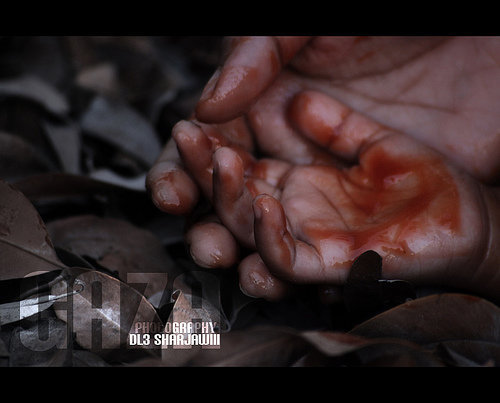

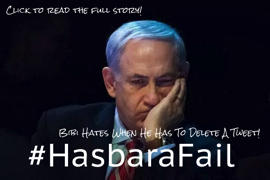



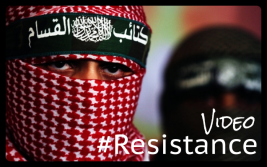

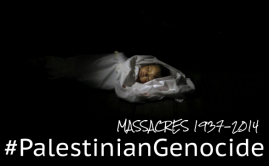





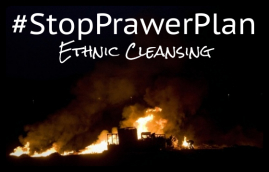






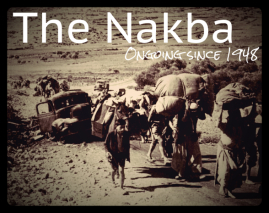



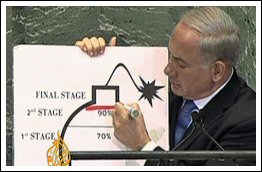
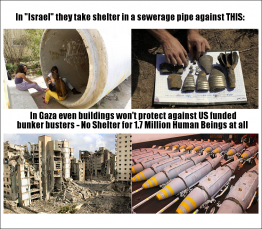





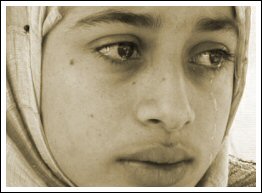
Comments are closed.